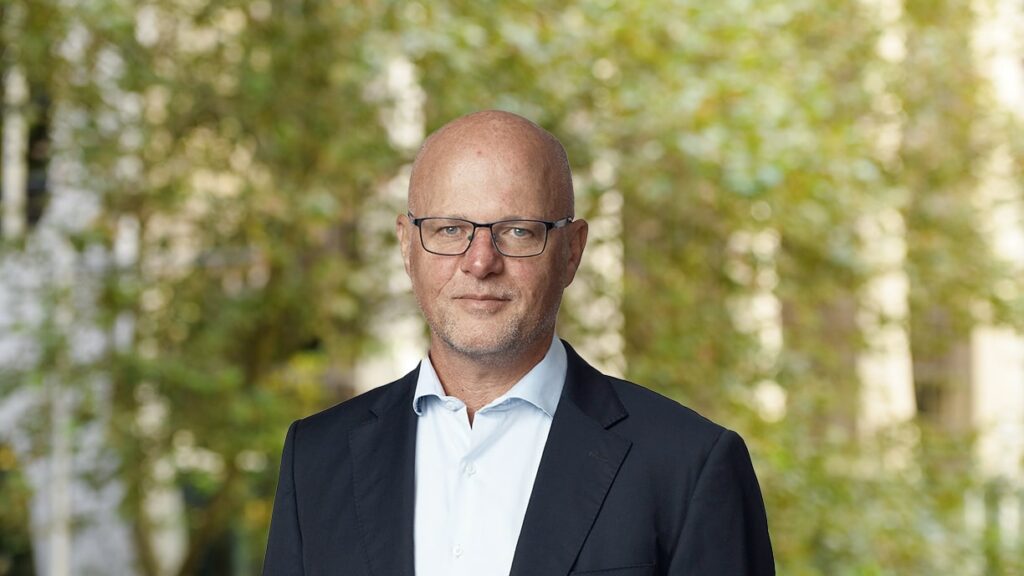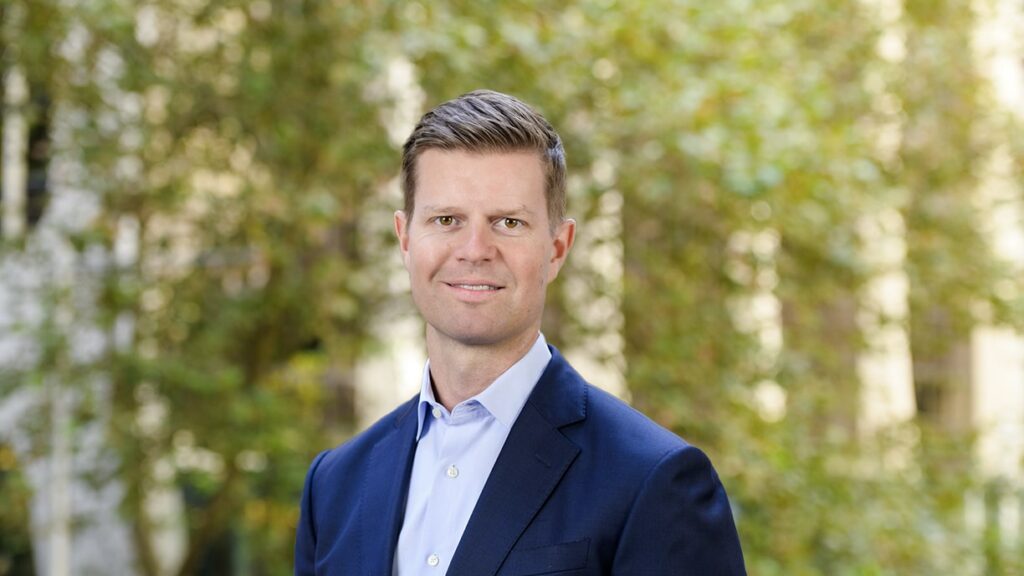The Resolution Capital Global Property Securities CCF (the “Fund”) is a sub fund of the Resolution Capital UCITS Common Contractual Fund (the “CCF”), an Open-Ended Umbrella Common Contractual Fund with segregated liability between its sub-funds established under the laws of Ireland pursuant to the European Communities (Undertakings for Collective Investment in Transferable Securities) Regulations 2011.
Investment Style
Resolution Capital is a value-oriented investment manager with the objective of delivering superior risk-adjusted returns over the long-term relative to recognised industry benchmarks. This is achieved through investment in a concentrated portfolio of carefully selected listed real estate securities with an emphasis on avoiding permanent impairment of capital. Securities in which the Fund invests are diversified across a range of real estate sectors and geographic regions, focusing on investments in the developed markets of North America, the UK, Europe and Asia Pacific.
Portfolio Managers

Andrew is one of the founding members of Resolution Capital. Andrew has over 30 years experience in global financial and property markets.
Prior to founding Resolution Capital Andrew worked for the Australian Stock Exchange, CS First Boston and Lend Lease, and is a past Chairman of the Property Council of Australia’s Capital Markets Committee.
Andrew is also a Fellow of the Australian Property Institute, and a Fellow of the Royal Institute of Chartered Surveyors.

Marco is one of the founding members of Resolution Capital and has over 30 years experience in global financial and property markets.
Marco has previously worked as a Senior Valuer at Jones Lang LaSalle and as a Consultant in JLL’s Advisory business where he was involved in valuing and advising institutional clients in regard to commercial real estate portfolios. He also worked as an Equities Research Analyst at BBY, and a Capital Transactions executive at Lend Lease. While at Lend Lease, Marco worked on real estate projects in Japan and Singapore.

Robert joined Resolution Capital in 2011 as a Global Portfolio Manager. Robert has over 30 years experience in listed real estate securities, bringing a wealth of experience to the team.
Robert has previously worked as the Director of Real Estate Securities at Invista Real Estate in London, Principal and Portfolio Manager with Adelante Capital, and Vice President at European Investors Inc, both in the United States. He has also worked at AEW Capital Management in Boston and RREEF in San Francisco.

Julian joined Resolution Capital in 2013 as a Senior Analyst and was promoted to Core Plus Co-Portfolio Manager in July 2014, and again to Global Portfolio Manager in October 2018. Julian commenced in the industry, specifically the real estate sector in 2004.
Julian has previously worked as an Analyst for Barclays Capital and in the real estate division of Macquarie Bank, both in London.
Julian is currently a member of the CFA UK society.
Investment Objective
The Fund aims to provide income and capital growth on your investment and to generate an annual total return that exceeds the FTSE EPRA/NAREIT Developed Index Net TRI on a rolling 3 year basis.
Details of the Fund can be found in the Prospectus, Supplement and Key Investor Information Documents (KIID) below.
The Investment Manager’s Remuneration Policy which includes details on the Management and Oversight of Sustainability Risks can be found here.
If you are an existing investor in the Fund and have an account enquiry, please contact the Fund Administrator State Street Fund Services (Ireland) Limited at ResolutionTA@statestreet.com or by phone on +353 1 242 5439.
Sub Fund
Resolution Capital Global Property Securities CCF
Currency / share class
ISIN
Key Investor Information Documents (KIIDs)
Investor Report
Unit Pricing
Global Property Securities CCF
Currency / Share Class
ISIN
Unit Pricing
Sustainability-related Disclosures
The Investment Manager selects investments on the basis of their Responsible Investment framework, which takes into account environmental, social and governance (ESG) considerations and risks. The Investment Manager believes that companies with strong ESG practices are likely to deliver superior investment outcomes and the initiatives will also benefit the broader community.
Governance is a key part of the Investment Manager’s investment process, with a focus on sound management practices, board composition, minority shareholder protections, remuneration structures and ensuring investee companies have simple and transparent strategies in place.
With respect to environmental factors, the Investment Manager considers the quality of the environmental disclosures, the existence of green buildings in the portfolio, energy consumption, and environmental pollution including water, air and waste management. The social factors considered by the Investment Manager include, human rights, health and safety, diversity and corruption.
The Investment Manager monitors compliance with the identified ESG factors on a regular basis through measurement of, but not limited to the investee company’s energy consumption per square metre, like for like change and stated targets for energy, greenhouse gas emission, water and waste via publicly available company disclosures, data sourced from third parties and direct engagement with investee companies. The Investment Manager also identifies whether the investee company has in place appropriate social policies such as Human Rights, Workplace Health and Safety, and Anti-Bribery/Ethics policies and whether there have been any reported breaches/incidents.
The Investment Manager’s comprehensive engagement program, which includes company meetings and proxy voting, is another important part of monitoring the effective implementation of good governance practices and ESG initiatives. Direct engagement also provides the Investment Manager the opportunity to share their philosophy and corporate governance values and make a positive contribution to investee companies. Further information on the Investment Manager’s investment approach regarding ESG is included in its Responsible Investment framework.
Although not having Sustainable Investment as its objective (per Article 9 of the SFDR), the Fund promotes environmental or social characteristics as part of its overall strategy and limits investments to those that follow good governance practices, in accordance with Article 8 of the SFDR.
a) Summary
The information contained in this section relates to the global real estate securities strategy and the identification, measurement and integration of environmental and social characteristics in managing the assets of the Resolution Capital Global Property Securities CCF (a sub-fund of the Resolution Capital UCITS Common Contractual Fund) (the “Fund”).
Further information about how Resolution Capital Limited (the “Investment Manager”) approaches sustainability and integrates environmental, social and governance (“ESG”) factors into the investment process more broadly can be found on the rescap.com/esg/ page. The Investment Manager’s Responsible Investment Policy, Proxy Voting Policy and Engagement Policy can also be found here, along with the Sustainability Report.
While the Fund promotes environmental or social characteristics within the meaning of Article 8 of the SFDR, it does not currently commit to investing in any “sustainable investments” within the meaning of the SFDR. It should be noted that the investments underlying this strategy do not take into account the EU criteria for environmentally sustainable economic activities within the meaning of the Taxonomy Regulation. There is consequently no specific index designated as a reference benchmark to monitor ESG characteristics.
The Fund invests in global listed real estate securities (i.e. equity securities which derive a significant portion of their revenue from property related activities) listed on key exchanges globally. The Fund’s investments provide exposure to a diverse range of underlying property types from around the world including office buildings, shopping centres, industrial warehouses, residential communities, hotels, self-storage and healthcare facilities. While the Fund will invest in securities that derive most of their returns from rental income, the Fund may also have exposure to companies which undertake activities such as real estate development, real estate construction, contracting and fund management activities.
The asset allocation for the Fund is:
- 85-100% of the Net Asset Value of the Fund will be invested in equities which may be located in North America, UK, Europe and or the Asia Pacific region; and
- 0-15% of the Net Asset Value of the Fund will be invested in cash.
The Fund may also use FDIs to gain exposure to the relevant equities. Foreign exchange forwards may be used for the purposes of unit class hedging.
b) No sustainable investment objective
The global real estate securities strategy promotes environmental and social characteristics but does not have a sustainable investment objective. Further the strategy does not commit to investing a set proportion of the portfolio in sustainable investments.
c) Environmental or Social (“E/S”) characteristics of the financial product
The Fund invests in real estate securities listed on major exchanges globally. Resolution Capital Limited (the “Investment Manager”) adopts an ESG integration approach and takes environmental and social characteristics into account when performing due diligence on potential investee companies and in monitoring the performance of companies held within the Fund’s portfolio.
The Responsible Investment policy which applies to the Fund aligns to the principles of the UN Principles of Responsible Investment (the PRI). With respect to environmental factors, the Investment Manager considers the quality of the environmental disclosures, the existence of green buildings in investee companies’ portfolios, energy consumption, and environmental pollution (including water, air and waste) management. The social factors considered by the Investment Manager include human rights, health and safety, diversity and corruption.
d) Investment strategy
The Fund invests in global listed real estate securities (i.e. equity securities which derive a significant portion of their revenue from property related activities) listed on key exchanges globally. The investments provide exposure to a diverse range of underlying property types from around the world including, office buildings, shopping centres, industrial warehouses, residential communities, hotels, self-storage and healthcare facilities.
The Investment Manager believes that optimum risk adjusted returns can be achieved through a concentrated portfolio of 30 to 60 securities and are intent on identifying and avoiding factors which could reasonably result in permanent capital impairment of the underlying investments.
The Investment Manager believes that the ultimate driver of real estate securities is the quality and level of sustainable cash earnings generated by the underlying properties. As a result, their proprietary research process focuses on consistently evaluating these cash flows across real estate sectors and regions.
The Investment Manager adopts fundamentals-driven stock selection which is focused on:
- High quality, high barrier assets that are located in key cities and primary markets capable of achieving some level of pricing power in rent negotiations; and
- Entities with sustainable capital structures which are run by disciplined and aligned management teams.
The bottom-up analysis is reviewed in conjunction with the identification of ‘top down’, broader investment and direct real estate specific themes, e.g., macro-economic conditions, demand and supply levels, construction costs, etc. which may influence the risk level of the stock.
Supporting the bottom-up philosophy is the division of research responsibilities amongst the Investment Team by sector rather than geographic region. The Investment Team are experts in their respective sectors, having travelled widely and been exposed to world best practices in the retail, office, residential, industrial and hotel sectors. They are uniquely equipped to evaluate companies and their management teams against global peers.
The investment team are the primary drivers of engagement activities and will integrate sustainability and social factors into their assessment of an investee company. The long holding period for investments also helps establish deeper relationships with the companies invested in.
e) Proportion of investments used to meet E/S characteristics
The asset allocation for the Fund is:
- A minimum of 85% of the Net Asset Value of the Fund will be invested in securities which promote the environmental and social characteristics of the Fund; and
- Up to 15% of the Net Asset Value of the Fund will be invested in cash.
The Fund may also use FDIs to gain exposure to the relevant currency. Foreign exchange forwards may be used for the purposes of unit class hedging.
There is no commitment to invest a proportion of the assets in sustainable investments.
f) Monitoring of E/S characteristics
The Investment Manager monitors ESG factors on a regular basis through measurement of characteristics such as the investee company’s energy consumption per square metre, like for like change and stated targets for energy, greenhouse gas emission, water and waste management. Information is sourced via publicly available company disclosures, from third parties (including Global Real Estate Sustainability Benchmark (GRESB), MSCI, Bloomberg) and through direct engagement with investee companies.
The Investment Manager also identifies whether the investee company has in place appropriate social policies such as Human Rights, Workplace Health and Safety, and Anti-Bribery/Ethics policies and whether there have been any reported breaches/incidents. The Investment Manager engages with the investee companies in the Fund as another way of monitoring that the companies are on track to meet their stated targets.
g) Methodologies
Environmental:
The Investment Manager includes a review of a company’s impact on the environment as part of our investment process and is a key component when assessing the quality of the assets owned by the company.
Specifically, the Investment Manager considers the Sustainability/ESG policy of the entities, the existence of ‘green’ buildings in the entities’ portfolio and the adoption of sustainability standards in construction practices, among other environmental initiatives and targets.
Where data is available, we also measure a company’s consumption, like-for-like change and reduction targets for the following environmental metrics:
- Carbon intensity via greenhouse gas emissions (GHG);
- Energy consumption;
- Water consumption or harvesting; and
- Waste generation and diversion to landfill
The investment team also proactively engages with sustainability personnel of investee companies, typically through one-on-one discussions. As a team they have long standing relationships with the key decision makers in the companies they invest in.
Social:
The Investment Manager includes a review of an entity’s activities as part of our investment process, as we believe these activities, which have an overall social impact on all stakeholders and have a consequential impact on the value of each entity.
Factors that are considered, inter alia, in this process include:
- Overall social impact of activities of the company;
- Where activities do have a detrimental social effect, how strong is the regulation of the company’s activities;
- Does the company adhere to all the regulatory requirements that apply to them; and;
- Has the company been subject to many complaints from stakeholders (whether they are employees, shareholders or other parties interacting with them)? and;
- Gender diversity on Boards and senior management;
The activities that will result in companies being excluded for consideration occur where the social impact of the activities of the company is so great that the companies are considered non-investment grade regardless of other factors.
Activities that may be included in this assessment include:
- Mistreatment of employees, particularly in emerging markets or jurisdictions where regulations surrounding such activities are poor or non-existent;
- Mistreatment of other stakeholders (such as suppliers or purchasers), particularly in emerging markets or jurisdictions where regulations surrounding such activities are poor or non-existent; and
- Engaging in any illegal activities.
h) Data sources and processing
ESG data is consolidated in our proprietary research database with market and portfolio data. Information is primarily sourced from company reports, broker research reports, Global Real Estate Sustainability Benchmark (“GRESB”) data, Bloomberg, MSCI, and ISS.
In 2022 Resolution Capital has expanded our ESG data collection and integration with external data sources for carbon emissions and targets, and EU Taxonomy related data sets to enable more granular and broader measurement of the ESG characteristics of our portfolio holdings, for example to gauge alignment with the Paris Agreement or the EU Taxonomy. These additional datasets will assist us in better understanding the ESG characteristics of our portfolio holdings and investable universe to track improvement and identify areas for engagement, and enable us to report and track Principal Adverse Impacts over time.
i) Limitations to methodologies and data
As an Investment Manager with a global portfolio, the ability to assess and compare ESG metrics across companies, sectors and regions consistently can be challenging due to differences in local regulations/disclosure requirements, and differences in the focus for investors in those markets leading to variations in the amount of available data.
As mentioned above, we source information from company reports, broker research reports, GRESB, Bloomberg, MSCI and ISS. We also engage with companies in our approved investment universe where we consider that relevant disclosures are lacking in an effort to encourage them to implement or improve their disclosure of environmental factors and relevant emission reduction targets (in particular).
j) Due diligence
The Investment Manager invests in high quality real estate assets that are located in key cities and primary markets capable of achieving some level of pricing power in rent negotiations; and entities with sustainable capital structures which are run by disciplined and aligned management teams.
The Investment Manager divides their research responsibilities amongst the investment team by property sector rather than geographic region. By structuring our research process this way, they are able to assess similar sector companies across different geographies, for instance comparing office portfolios in London, Hong Kong, Tokyo, New York and San Francisco.
The basis of our research process can be broadly split into three steps.
1. Data Distillation
Our research process begins with the distillation of data and information from numerous sources such as company financial reports, field visits and meetings with company management, industry contacts, brokers, real estate agents, economists, industry groups, unlisted competitor companies and industry conferences.
2. Detailed Research
Once a stock has been identified for further detailed research, the responsible analyst will research that stock and its competitors. The investment team is required to travel extensively to meet with company management and inspect properties and markets, and this often forms the foundation upon which our research begins.
Analysis of the management teams also forms an important part of our research process. Our team seeks to identify companies that have the ability to add value through cycles and have the appropriate platform and depth of resources to execute their strategy.
3. Evaluate and Compare
A consistent evaluation of the actual and potential earnings from the company is then undertaken against the investment universe. We also include an adjustment for environmental factors depending on how a company has implemented measures to improve the performance of its properties by reducing energy consumption and carbon emissions. These measures decrease operational expenses and can also increase occupancy rates and rental income over time.
A proprietary database is used to collate our research that enables cross comparisons among regions and sectors to highlight any discrepancies. This system also sources data feeds from broker consensus forecasts that test our conviction and highlights differences in our research forecasts versus the market.
Throughout our investment process, our team constantly assesses the risks associated with each stock – our focus is on ensuring appropriate compensation for risk. This risk assessment also includes environmental risks (such as physical risk which may impact on the value of the company’s assets in a rising sea level situation) or transition risk.
The companies that make up the portfolio are consistently monitored. The Investment Manager meets with company management to ensure that they continue to exhibit the characteristics of strong alignment of interests with shareholders, a consistent strategy, disciplined capital management and a track record of active asset management. Where companies start to exhibit decision-making which is contrary to these characteristics, we may engage with them further or may decide to exit the position.
k) Engagement policies
Analysing sustainability topics and then engaging with companies on material issues is an integral part of the investment process. The analysts and Portfolio Managers are all involved with engagement issues for investee companies.
To add robustness and ensure a systematic approach to our engagement activities, each year we set an engagement agenda. Here, we analyse the performance of our portfolio holdings across a couple of key ESG issues and engage with those companies who fall short of our expectations. We define specific objectives for all of our engagement activities, and monitor the actions companies take during and following our discussions with them to determine whether the engagement has had an impact, or whether further engagement is required.
Recent engagements have focused on:
Climate Change
The Investment Manager is committed to mitigating climate risk in the Portfolios it manages, and we believe limiting global warming to well below 2, and preferably to 1.5 degrees Celsius by dramatically reducing Greenhouse Gas (GHG) emissions is vital. We believe it is critical that our industry plays its part in reducing emissions consistent with the goals of the 2015 Paris Agreement.
Alignment with the 2015 Paris Agreement means approximately a halving of greenhouse gas emissions by 2030 (from a baseline of 2015) and carbon neutrality by 2050. We also actively encourage our Portfolio companies to implement the Taskforce Climate Related Disclosure (TCFD) recommendations including; better climate-related disclosures, encouraging the calculation and disclosure of their carbon footprint, and encouraging those companies that had not to undertake a physical risk assessment of their assets.
Modern Slavery
The Investment Manager considers adherence to human rights a key consideration in our Responsible Investment Policy. We are also required to take into consideration the requirements of the Modern Slavery Act 2018 (Australia) on behalf of our clients. We therefore have engaged with investee companies to understand how they identify and address human rights within their business operations and supply chains.
l) Designated reference benchmark
There is no designated sustainability related reference benchmark.
Article 3 – Policies relating to the integration of sustainability risks in our investment decision-making process.
Article 4 – Transparency of adverse sustainability impacts
Taking due account of the nature, scale and complexity of its activities, the Investment Manager, in accordance with Article 4(1)(b) of the SFDR, has elected for the time being not to consider (in the manner specifically contemplated by Article 4(1)(a) of the SFDR) the principal adverse impacts of investment decisions of the Fund on sustainability factors. The Investment Manager considers this a pragmatic and economical approach to compliance with its obligations under the SFDR. To the extent that appropriate and accurate data becomes more widely available/accessible and the regulatory landscape stabilises, the Investment Manager may in the future look to consider the principal adverse impacts of its investment decisions on sustainability factors within the meaning of Article 4(1)(a) of the SFDR, if the Investment Manager considers that the results of such an assessment would prove meaningful to investors in the financial products it makes available.
View our description of the Principle Adverse Impacts on sustainability factors
Article 5 – Transparency of remuneration policies in relation to the integration of sustainability risks.
The supplement to the prospectus for the Resolution Capital Global Property Securities CCF also carries a section on SFDR disclosures, including required pre-contractual information.
Consideration of Adverse Sustainability Impacts
Taking due account of the nature, scale and complexity of its activities, the Investment Manager, in accordance with Article 4(1)(b) of the SFDR, has elected for the time being not to consider (in the manner specifically contemplated by Article 4(1)(a) of the SFDR) the principal adverse impacts of investment decisions of the Fund on sustainability factors. The Investment Manager considers this a pragmatic and economical approach to compliance with its obligations under the SFDR. To the extent that appropriate and accurate data becomes more widely available/accessible and the regulatory landscape stabilises, the Investment Manager may in the future look to consider the principal adverse impacts of its investment decisions on sustainability factors within the meaning of Article 4(1)(a) of the SFDR, if the Investment Manager considers that the results of such an assessment would prove meaningful to investors in the financial products it makes available.
Apply Now
To invest in the Fund please contact Resolution Capital at clientservices@rescap.com or by phone on +61 2 8258 9188.
